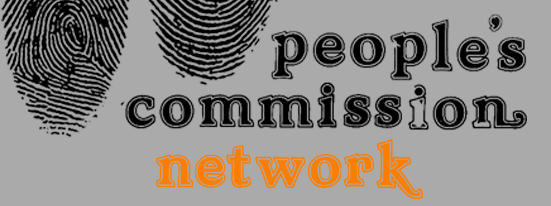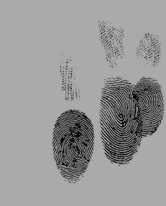Abousfian Abdelrazik: Project Fly Home
winter morning blues
Listen to:
* winter morning blues
for Abdelrazik
piano — Stefan Christoff
recorded by Thierry Amar @ Hotel 2 Tango
Statement from Abousfian
Listen to an audio statement from Abousfian Abdelrazik on April 1st, 2009 by clicking the play button below. You can download the MP3 here.
Talking Points
Talking points
The UN Security Council 1267 Regime & Abousfian Abdelrazik
April 2011
Who is Abousfian Abdelrazik?
Mr. Abdelrazik is a Montreal-based Canadian who was arrested while on a visit to Sudan in 2003. Later, the Federal Court of Canada found that his arrest by Sudanese authorities probably took place at the request of Canada’s spy agency, CSIS. Mr. Abdelrazik was beaten, threatened and tortured during two periods of arbitrary detention totaling a year and a half. In this context, he was questioned by CSIS agents. He was never charged with any crime and was eventually released.
In 2006, just after his release from prison, Mr. Abdelrazik's name was added, without his knowledge, to the United Nations Security Council “1267” blacklist, which imposes an asset freeze and an international travel ban.
This allowed the Canadian government to block his return to Montreal for several more years. In 2008, Mr. Abdelrazik finally went to the media with his story. After speaking openly about torture in Sudanese prisons, it was no longer safe for him to remain at large in Sudan, so he took refuge in the Canadian Embassy in Khartoum.
There he remained for a further 14 months as the Canadian government continued to block his return. A groundswell of public support and a Federal Court ruling finally forced the Canadian government to bring him home in June 2009, after over six years.
No criminal charges have ever been brought against Mr. Abdelrazik. In 2007, both the RCMP and CSIS provided letters saying that they had nothing against Mr. Abdelrazik.
What is the 1267 Regime?
United Nations Security Council Resolution 1267, adopted in 1999, established a new international sanctions regime against individuals and organizations alleged to be associated with the Taliban. Later the list was expanded to include individuals and organizations suspected of association with Osama bin Laden. Individuals and groups who are “listed” by the 1267 Committee are subject to: a) an international travel ban; b) an arms embargo; and c) an asset freeze - indefinitely. For individuals who are on the “1267 List”, it is a “prison without walls”.
How do you get on and off the list?
Individuals are listed on the initiative of one of the 15 members of the UN Security Council. These states are now required to provide a “statement of case”. A criminal charge or conviction is not necessary; in fact, no crime need have taken place because listing is based on “association”. Individuals are not provided with the statement of case nor are they given a hearing or even notified before being listed. Prior to 2008, the listed individual was given no information about why their name appeared on the list. In response to growing criticism, a simple narrative summary of the allegations (a paragraph or two) – with no supporting evidence – is now published on the website of the 1267 Committee.
Countries can petition to have an individual removed from the list. Individuals can also directly apply to be delisted. In either case, the decision to delist is taken by the members of the Security Council – the same body which put them on the list. This means that the accuser and the judge are the same. Delisting requires consensus among all members of the Security Council (including the state who put the individual on the list in the first place), any one of whom can block the request without giving any reason for doing so.
In 2008, the Security Council itself acknowledged that “[i]t is far easier for a nation to place an individual or entity on the list than to take them off.” (Update Report 1267, 21 April 2008).
What do the experts say?
The Federal Court of Canada wrote in a June 2009 decision: “I add my name to those who view the 1267 Committee regime as a denial of basic legal remedies and as untenable under the principles of international human rights. There is nothing in the listing or de-listing procedure that recognizes the principles of natural justice or that provides for basic procedural fairness.”
How is the 1267 Regime applied in Canada?
Regulations implementing the 1267 regime in Canada (under the United Nations Act) make it illegal for anyone in Canada to provide Mr. Abdelrazik with any financial assistance, including salary, loans, or gifts. The penalty is up to ten years in prison.
What is Canada's position on Mr. Abdelrazik's listing?
In 2007, on the request of Mr. Abdelrazik's lawyers, Canada reviewed Mr. Abdelrazik's listing. After both security agencies said they had nothing against Mr. Abdelrazik, Canada asked the United Nations Security Council to remove Mr. Abdelrazik's name from the list. The request was refused. No reasons were provided. Canada's official position remains that Mr. Abdelrazik should be removed from the list.
Delisting is in the hands of the security council. What can the Canadian government do?
Although delisting is in the hands of the security council, there are several actions that Canada can take to ensure that Abdelrazik is delisted and to relieve his situation immediately:
- The Minister of Foreign Affairs can contact the ambassadors of each member of the Security Council present in Ottawa and inform them that delisting Abdelrazik is a priority for Canada. This has not been done.
- Cabinet can revoke the order-in-council that implements the 1267 Regime in Canada. Not only would this immediately free Mr. Abdelrazik from the effect of the sanctions within Canada, it would send a strong signal to the Security Council that the 1267 Regime is unacceptable.
- Cabinet can also amend the regulations implementing the 1267 Regime in Canada to exempt Mr. Abdelrazik. There is a precedent in the case of Liban Hussein, another Canadian who was on the list from November 2001 to July 2002. Before his name was removed from the list, the Canadian government suspended sanctions against him in Canada in this manner.
It is before the courts. Isn't the government obliged to wait and see what the courts decide?
Mr. Abdelrazik filed a constitutional challenge to the blacklist in Canadian courts in June 2010. This is currently before the courts. However, this does not mean that the government has to wait to act. On the contrary, the government should act immediately to rectify this situation of injustice, and not waste time and money fighting for an unconstitutional law.
What can members of Parliament do?
Members of Parliament can take a position against the 1267 Regime and in favour of Mr. Abdelrazik's being removed from the list. They should make the government, the public and the 1267 Committee aware of their stance.

The People's Commission Network is a working group of QPIRG-Concordia qpirgconcordia.org 514.848.7585 info@qpirgconcordia.org

Contact the People's Commission Network: QPIRG Concordia - Peoples's Commission Network c/o Concordia University 1455 de Maisonneuve Ouest Montreal, QC, H3G 1M8 commissionpopulaire@gmail.com
This website is based on the Fluid 960 Grid System




